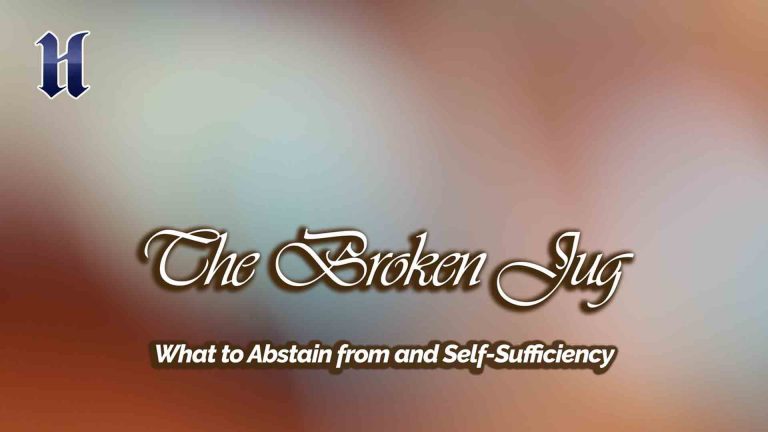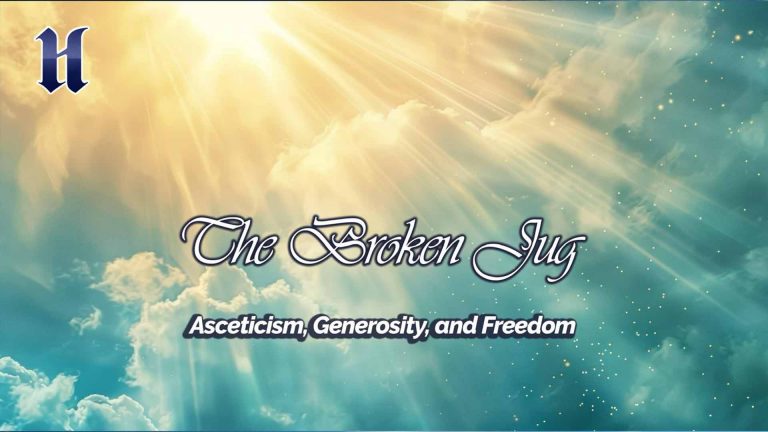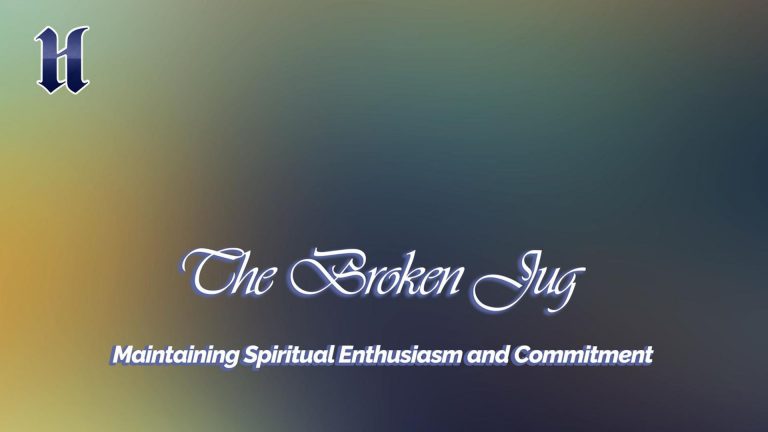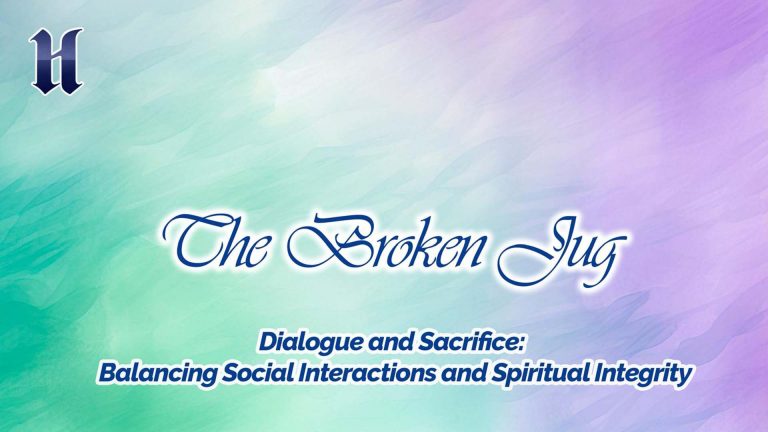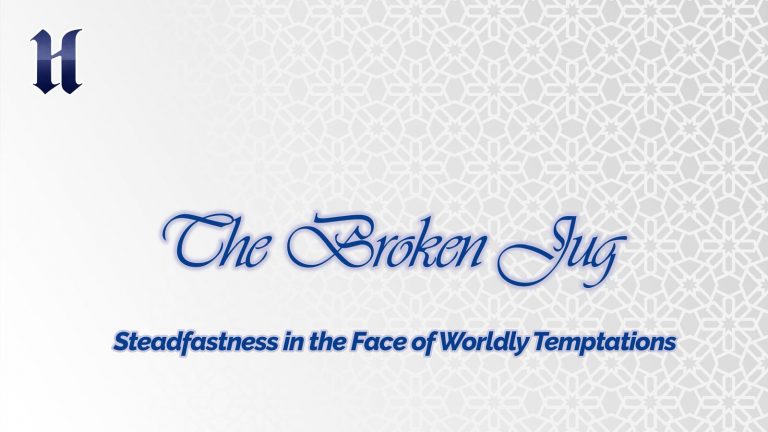Question: Is there a connection between natural/cosmic events and our actions, are the incidents that happen to us related to our deeds and actions?
Answer: In the universe, there is no room for randomness. Each event occurs according to eternal knowledge, will, and preordination. As can be understood from many verses of the Qur’an, human deeds can have significant consequences, sometimes within a limited scope and sometimes on a cosmic scale. This can take the form of our actions triggering certain events within the realm of causes and effects, and it can also manifest as additional situations presented by the Creator based on whether our deeds align with His approval.
In a Quranic verse, it is stated:
Corruption and disorder have appeared on land and in the sea because of what the hands of people have (done and) earned (of evil deeds). Thus He causes them to taste the consequence of some of what they have done, so that they may (take heed, repent and reform, and so) return (to the right way). (Surah Ar-Rum, 30/41)
Another verse is as follows:
(O human being!) Whatever good happens to you, it is from God; and whatever evil befalls you, it is from yourself. (Surah An-Nisa, 4/79)
Yes, indeed, it is so; it is possible to associate every situation we encounter with our actions in one way or another. However, at times due to our negligence, sometimes due to our ignorance, sometimes because events do not unfold according to our desires, sometimes due to the pardoning or postponement of punishments stemming from our mistakes, and sometimes due to punishments not being directly tied to our deeds but manifesting in different ways, we fail to perceive, establish, or comprehend the connection. We think based on the knowledge we acquire from natural events and our habits, seeking a causal relationship between our actions and natural occurrences. And when we cannot establish this relationship, we assume that the events that unfold are mere coincidences.
However, as we mentioned earlier, there is no room for randomness in the universe. The idea of seeking a perfect causal relationship (cause and effect) between the actions that emanate from us and the events that occur in the external world can mislead us. In the unfolding of events, there can be intricate wisdom and profound mysteries that superficial perspectives might struggle to grasp at first glance. The recognition, perception, and understanding of these require introspection and contemplation, engaging in profound reflection upon events, and adopting a comprehensive, holistic perspective.
Understanding that the beauty and blessings one experiences is from Allah, while the difficulties, hardships, and adversities one faces are a result of one’s own actions and shortcomings, is a fundamental principle and an expression of respect towards the Creator, acknowledging His rights. Thus, we recognize that the blessings we encounter are a result of His grace and that the favorable outcomes of our deeds are a manifestation of His mercy. Just as He is the One Who provides us with our abilities and capabilities, our thoughts and emotions, He is also the One Who brings about significant outcomes that cannot be explained solely by the principle of cause and effect, based on the intricate relationship between our efforts and the results.
On the other hand, when distressing events befall us, we first turn our gaze inward, towards our own selves. The hardships might have come solely as a test. However, perhaps our Lord has equipped us with so many material and spiritual faculties, yet the outcome has turned unfavorable due to either our misuse of these faculties or our own shortcomings and mistakes. Being able to recognize and realize this is, in fact, the greatest provision on the path to perfection. The individual who consistently subjects their actions to self-assessment and self-observation (introspection), who seeks the lion’s share of responsibility within their own ego while analyzing the hardships they encounter, is a candidate for becoming an integrated, complete human being (insan-ı kâmil). On the contrary, someone who consistently blames others or fate as the cause for their hardships falls into the trap of their own ego. Such an individual cannot see the mistakes they have made, and in reality, the ability to see them is what should guide them towards the path of correction.
For instance, if an individual faces certain accusations, slanders, or experiences failures in their endeavors, or encounters difficulties along their path, if they respond by blaming fate, saying, “What have I done to deserve all of this happening to me?” they will be at a loss. On the contrary, what they should do is consider that all of these challenges might be a result of their own actions. When faced with adversity, their response should be, “What kind of mistake might I have committed that the Almighty has subjected me to these hardships?” They should reflect upon their actions. This manner of thinking can be applied when considering one’s own situations. However, applying such thoughts to someone else’s misfortune would be groundless and unjust suspicion.
Let’s consider the successive experiences of oppression, victimization, and subjugation that the Islamic world has faced in recent times. Can we absolve ourselves from the situation by attributing blame to others? Even the simplest tasks, even a game, has its own set of rules; to win the game, one must adhere to those rules. Otherwise, defeat becomes inevitable.
If as Muslims, you have misread the era, neglected various aspects of life, surrendered certain domains, lagged behind in knowledge and intellectual pursuits, you will find yourself besieged from within and without. Even if you perceive yourselves as free, you will fall under influence and be compelled to live a complex life of servitude. You won’t have the freedom to move as you wish, to lead the life you desire with your family, or to raise your children as you see fit. You won’t be able to prevent the onslaughts and accumulation of hardships and disasters. Instead of blaming others for the multitude of negatives you face, you should turn the gaze inward and reflect on the neglect and mistakes that have contributed to these outcomes.
When we look at the general picture of the contemporary Islamic world, it’s heart-wrenching. Confusion, conflicts, and wars seem unending. Poverty prevails everywhere, underdevelopment is widespread. Many countries are plagued by dictators or oligarchic structures that oppress their people as much as they can. Muslims are groaning under pressures from within and without. Before pointing fingers at others, the necessary question that should be asked here is: Are the various trials and tribulations we face a consequence of our own deficiencies, neglect, errors, and sins? Unfortunately, we haven’t played the game according to its rules. We haven’t fulfilled our responsibilities. We’ve been lazy. Consequently, we’ve suffered certain deprivations and hardships from the perspective of Divine commands.
When a person views events through this lens, constantly reflects upon themselves, and believes that problems originate from within, they won’t complain about their condition, criticize fate, or blame others. Instead, they turn to repentance and seeking forgiveness, which serves as an expiation for their sins (keffaretü’z-zünûb). Furthermore, they retrace their steps from the wrong path, seeking to rectify their mistakes. For such an individual, adversities fulfill a purpose; they serve as a means for awakening and realization. Therefore, the aspect of mercy within afflictions comes to the forefront. The apparent negativity of events shifts towards their positive aspect. As expressed in the verse (Surah Qaf, 50/7), those with vigilant hearts, open eyes, and attentive ears recognize the truth that everything serves as a caution, warning, and lesson. It is these individuals who perceive the manifestation of God’s compassion and mercy in every aspect of events, whether small or significant.
I find it important to clarify a point that might be misconstrued: Suggesting that we should recognize our own mistakes does not imply refraining from thoroughly analyzing the events that befall us, nor does it mean overlooking the involvement of others in these matters. Of course, while a calamity might have its roots in our actions, it could also be influenced by the actions of others. When analyzing an event, it’s necessary to consider these aspects as well and take precautions against them. What we are emphasizing here is solely the perspective that concerns ‘us’ – the side of the matter that pertains to ‘our own’ faults. In other words, it’s related to the attitude we should adopt regarding situations linked to ‘our’ shortcomings.
The Guidance of Spiritual Mentors and Guides
Believers are not only responsible for adhering to legislative commands but also for comprehending the divine decrees. [They are not only responsible for man-made laws but also God designed (natural) laws that run and operate in the universe.] However, not everyone possesses the capacity to grasp events in their vast complexity and to evaluate them within the context of cause and effect relationships. In this regard, the presence of spiritual guides with broad perspectives and deep insights is of great significance. They should be able to analyze the spiritual reasons behind the difficulties faced and the catastrophes endured, shed light on the types of negligence and faults that might have led to these outcomes, and provide guidance to believers on what needs to be done.
Up until now, certain scholars and intellectuals have presented various analyses and insights regarding the successive turmoil and crises faced by the Islamic world. Some have lamented stagnation, laziness, and underdevelopment, while others have emphasized the need for a revival and reawakening. Their ideas have sparked partial efforts and movements in some individuals. However, within these discussions, there is a distinct place for the comprehensive understanding of issues and proposing solutions that truly address the underlying problems – a place that belongs to Bediüzzaman Said Nursi.
Moreover, it remains uncertain whether those entrusted with Bediüzzaman’s legacy have truly grasped his ideas, diagnoses, and the solutions he put forth in accordance with his vision. Despite the remarkable performance he exhibited under very difficult circumstances, where he was absolutely rushed off his feet finding solutions, unfortunately, we have yet to fully comprehend and effectively implement the inheritance he left behind.
Looking at the overall picture, it cannot be said that we have correctly deciphered the language of events or adequately drawn the lessons they offer. Regrettably, neither our Quranic schools, nor our religious vocational schools (imam hatips), nor our faculties of theology have been successful in this regard. They have not fulfilled their duty properly and have not been able to guide society toward the right path. Due to the lack of systematic and well-planned efforts, an Islamic enthusiasm could not be awakened in hearts, necessary actions for a lofty cause could not be initiated, and a collective progress and development of the nation could not be facilitated. Because the cause-and-effect relationships were not properly understood, necessary precautions could not be taken.
May Almighty God grant us the ability to correctly interpret and assess all the events we experience, whether bitter or sweet, and enable us to extract the lessons that need to be learned from them.۞
***
Note: This article is translated based on a “sohbet” (Q&A conversation) that took place on May 8, 2010.


